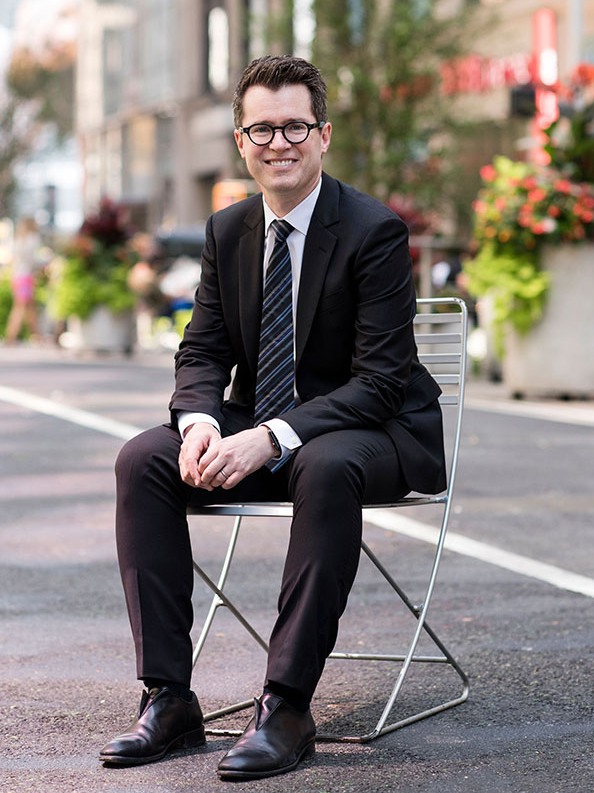Growing up in northern Alaska, a remote part of the world even today, Kris Brown discovered early on that opportunity is a limited resource. Now he's set out to change that.
After concentrating in applied mathematics and economics at Brown, Kris attended Boston University School of Law. Today, as a partner at Goodwin Procter, he negotiates and structures the legal aspects of corporate transactions, specializing in the life sciences, health care, and technology sectors. He gained much of his experience in the late 1990s—the early days of the internet—in New York, then sometimes called "Silicon Alley."
The next breakthrough
Kris also is an active angel investor, beginning with a seed stage stake he made in the internet communications company Skype when it was first formed in the late 1990s, and has continued to invest personally in emerging technology and life sciences companies. In 2011, when he first recognized the revolutionary nature of Blockchain* technology, he approached the founders of Blockchain Limited, an e-wallet provider that held bitcoin. He knew that their search feature, which accompanies the e-wallet and enables users to verify Blockchain transactions, was critical and could have many uses beyond electronic currency. Ultimately, Kris started purchasing bitcoin, as another way of investing in the technology.
It is not just emerging technology that interests him, but the ways in which new technologies dramatically alter access to purchasing and other opportunities.
For example, the transaction of buying a car is today completed when a paper title is transferred from the buyer to the seller. "That's a narrative we all in some ways 'randomly' decided: that a simple piece of paper would represent ownership." But, Kris asks, "what if we all simply agree to change the narrative so that the car's ownership was instead represented on the Blockchain?" That would allow someone in New York City to potentially transfer ownership to a woman in a remote area of India. Although the purchaser might never see the car, she could—in theory—lease it to an Uber driver and earn revenue to benefit her and her village.
"It would mean a true flattening of the economy, in the same way Skype was one of the first companies to use the internet to make it possible for people to communicate across continents at virtually no cost. It provides access to thoughts and ideas."
Bitcoin, for good
Kris has found additional ways to create opportunities through his Bitcoin investments. "In the early days, people were using it to buy all sorts of things, from pizza to clothes." But Kris chose to use Bitcoin as a meaningful agent for social change by supporting causes he values. In March 2018, as pro bono general counsel for DonorsChoose.org, the education crowdfunding organization, he even guided his client on aspects of the largest reported donation—$29 million—in cryptocurrency** to a single organization. In his role, Kris paced the sale of the cryptocurrency to avoid a depression in the price. The impact of the gift is staggering: it funded 35,000 classroom projects, and affected roughly one million students and teachers in nearly 17 percent of all U.S. public schools.
